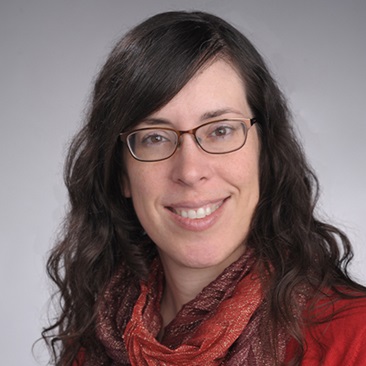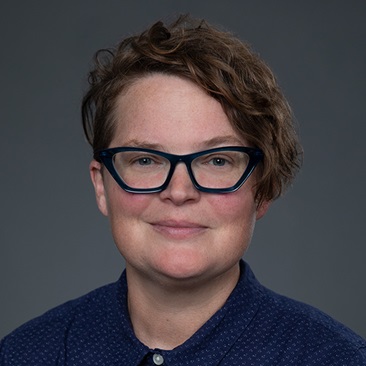Maxwell Students Take Honors in City of Syracuse’s Inaugural Open Data Day
January 10, 2024
Encouraged by Associate Professor Michiko Ueda-Ballmer, the group of mostly MPA students used public data to address city transportation challenges.
On a recent Saturday afternoon, students in Michiko Ueda-Ballmer’s Data-Driven Decision-Making class got to test what they’ve learned in a first-ever competition designed by the City of Syracuse to use data to address societal problems related to transportation.

The class, composed mostly of students in the Maxwell School’s current master of public administration (M.P.A.) cohort, took part in the City of Syracuse’s inaugural Open Data Day.
Open Data Day was the culmination of a month-long “hackathon” challenge in which city leaders enlisted the public to use open and available datasets to address challenges, such as vehicle and pedestrian safety and fixing street infrastructure. Between Oct. 4 and Nov. 4, teams created projects that utilized at least one dataset in the city’s Open Data Portal. This year’s topic–transportation–aligns with the city’s Vision Zero program, which aims to improve traffic safety.
Ueda-Ballmer, associate professor of public administration and international affairs, came across the portal while preparing her course and thought it was a good way for students to connect open data with public policy. She invited the city’s data program manager in the Office of Analytics, Performance & Innovation (API), Jason Scharf, to present the data portal to her class.
Ueda-Ballmer told students their participation in the challenge was a voluntary, ungraded opportunity. Out of 38 students in the class, 12 participated. Two teams of her students won prizes: first and second places.
“The data challenge provided them with a unique and valuable opportunity to apply the knowledge they've gained in the M.P.A. program to a real-world problem,” said Ueda-Ballmer, who also served as a competition judge. “Furthermore, I believe that their exceptional performance in the data challenge competition showcased the strength of our students.”

The team composed of students Kimberley Ojeda Rojas, Muhammad Yousaf Dilshad, Haris Khan, Omer Keles and Josephine Galdamez took second place. Their project analyzed city response time to community member service requests made to SyrCityline through the SeeClickFix application, which allows reporting of non-emergency problems to the city. The team found an association between how long the city takes to respond with geographies of racial and economic inequality.
“It's not only about having these datasets open to the public, but also wanting to do something about it,” Ojeda Rojas said. “[Our team] wanted to not only show the information geographically, but add something that we can all relate to. …The way that the city is handling these requests may have something to do with the level of income or percentage of people of color in some neighborhoods.”
Judges evaluated projects for creativity, “wow factor,” execution and informational value.
Ryan Lamson, Akarsh Bhutani, Liam Hannah and Debora Peci ultimately took first place for their project, which utilized multiple datasets to show the need for a comprehensive bike infrastructure in Syracuse. They were inspired by witnessing and experiencing several near accidents on Euclid Ave., which is heavily trafficked at intervals throughout the day with pedestrian, micro mobility and varying vehicle classes.
The competition gave out $1,800 in prizes: $1,000 (first place), $500 (second place) and $300 (third place). Mayor Ben Walsh ’05 M.P.A. was on hand to award prizes, and city leaders said they were thrilled with Maxwell’s involvement.
“I am definitely looking to continue those partnerships to be able to present to classes to let them know what opportunities we have coming up,” said Scharf. “I believe that they learned from my presentation but then also when they came and presented their projects, we learned a lot. My supervisor [Nicholas Diaz] calls it a virtuous cycle. We help teach them, and then we in turn can receive the benefit of that analysis, those insights.”
“The data challenge provided them with a unique and valuable opportunity to apply the knowledge they've gained in the M.P.A. program to a real-world problem.”
Michiko Ueda-Ballmer
associate professor of public administration and international affairs
In addition to the hackathon competition, Open Data Day included presentations and breakout sessions on topics such as analyzing smart devices, creating online maps and using augmented reality in urban change. Among the speakers was Mike Fudge, professor of practice and program director in the School of Information Studies, who talked about using open data with Python, a programming language.
Seven of Ueda-Ballmer’s student participants are in both the M.P.A. program and pursuing a certificate of advanced study in data analytics. Three other participants are Humphrey fellows taking part in a 10-month Maxwell program that hosts students from 10 emerging democracies and developing countries for graduate study, professional development and cultural exchange.
In addition to providing a real-life learning opportunity, Ojeda Rojas said the challenge gave her good experience working with others with diverse backgrounds, skills and interests. She described breaking up tasks for those with prior experience in coding, software, and data visualization as well as pursuing different roles for storytelling, literature review and database solutions.
“It was a lot of collaboration,” she said, “and I got to meet some of my teammates a little bit closer because though we do have classes together, this experience brought me closer to them.”
The city hopes to host open data challenges annually, focusing on new topics or social issues each year.
By Michael Kelly
Published in the Spring 2024 issue of the Maxwell Perspective
Related News
School News

Feb 13, 2026
Research

Feb 10, 2026

